Stethoscope Selector
Tools of the Trade: Best Stethoscopes by Medical Specialty in 2025

As you begin to invest in quality medical tools for your practice -- whether you're a nurse-in-training just completing their program or an experienced physician -- you might be looking to find the very best stethoscope. But, what makes a stethoscope the "best" is how well-suited it is to your needs.
Choosing a quality stethoscope goes beyond finding the most expensive or most popular, it's about finding one designed for your day-to-day duties. There are recommended stethoscopes for every type of medical professional, but first it helps to know the makings of a quality stethoscope.
Test of a Quality Stethoscope
There are certain features that make the highest recommended stethoscopes in 2023 the best-in-class. Manufacturers like 3M, who design and distribute the line of Littmann stethoscopes, commit themselves to offering versatility and state-of-the-art features in their selection.
Here are some factors to consider when choosing a stethoscope:
- Acoustic Quality: You need to be able to single-handedly capture both the low-frequency and high-frequency sounds that characterize various heart/lung conditions. Either a one-sided tunable or two-sided, double-frequency membrane will do the trick. Ambient noise-reduction capabilities can also help with more accurate auscultation.
- Durability: As a crucial piece of everyday equipment, you want to ensure your stethoscope will last a while. Stethoscopes constructed of stainless steel and rubber, with flexible tubing, will experience more longevity.
- Suitability: Which stethoscope will best accommodate your patients? If you deal mostly with children, you'll want something with a smaller chestpiece. Meanwhile, in critical care settings, you'll probably want a high-end stethoscope with the most progressive features.
- Comfort: Ultimately, without a comfortable stethoscope, it will be difficult to do your work regardless. Finding one that feels comfortable around your neck, with ergonomic earpieces, will go a long way.
- Cost: We're not suggesting that you should skimp on important clinical tools for your medical practice. However, if you're a nurse practitioner or doctor-in-training, there are plenty of midrange stethoscope options that go above and beyond without breaking the bank. Ranging anywhere from $99-$120, these stethoscopes are reasonably priced yet exceptionally capable.

Once you do purchase a stethoscope, you can test its overall efficacy by conducting the following:
- Check your own heartbeat.Using the stethoscope, try to auscultate yourself. Noticethe clarity and volume. Does it meet your expectations?
- Hold the stethoscope. Grip the headset and let the stethoscope body dangle. Are the ear tubes symmetrical? Is the tubing straight or does it pucker?
- Evaluate the chestpiece. Once again, put the stethoscope in your ears, and this time place a finger over the chest piece bell hole. Press lightly. If you feel pressure in the ears as a result, the stethoscope is airtight. If not, it's inferior.
If your stethoscope meets these standards, you're on the right path. Remember that, depending on your overall patient population, the nature of your work, and even something as simple aspersonal preference, the best stethoscope for you will vary.
For Primary Care & Family Physicians
The journey to a diagnosis begins at the primary care's office. As an internal medicine doctor,you'll likely begin every session with a quick auscultation. Since you tend to the generalpopulation, you need a stethoscope that is versatile yet advanced. That's why the Cardiology IV is considered the best stethoscope for general practitioners.
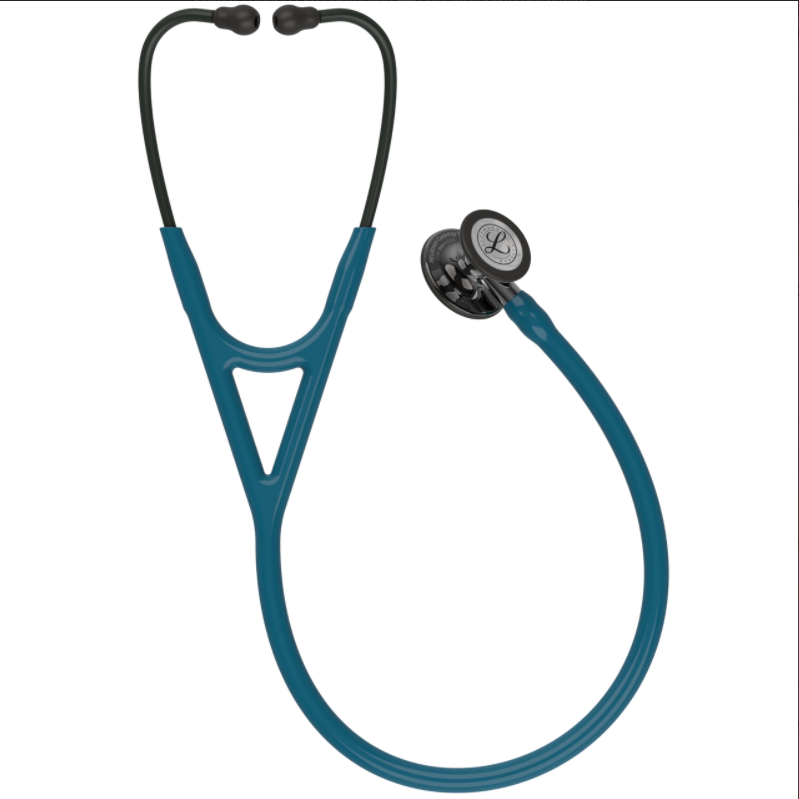
"As a general practitioner who sees all kinds of patients, the best option for me is the Littmann Cardiology IV," says Dr. Liana Casusi, licensed MD and consultant for Oh So Spotless. "It has an adult and pediatric side, eliminating the need to have separate stethoscopes for each age group."
Dr. Casusi also favors the superior sound quality, which is above the Littmann Classic models. Featuring a single-piece tunable diaphragm, it's easier to pick up various frequencies and reduce outside noise.
"The earpieces fit snugly, effectively eliminating unnecessary noises," Dr. Casusi explains. "It is very sensitive in detecting any changes in a patient's status, especially when I need to monitor them closely. This is due to its tunable diaphragm, which is pressure-sensitive, meaning I can hear different sound frequencies simply by adjusting pressure on the chest piece."The Cardiology IV is also a popular pick among medical students and resident doctors, making it an excellent gift for someone who is just completing their program. It comes with a 7-year warranty so you can ensure that it will hold up.
For Cardiologists & Cardiovascular Surgeons
When your specialty is the heart, you need a stethoscope built for peak performance and advanced detection. There are two stethoscopes that are best for cardiologists and cardiovascular surgeons. Inarguably, this profession needs top-of-the-line diagnostic tools, which is why the standards are higher.
The Master Cardiology stethoscope is the best mechanical option. It has the highest-performing acoustics among non-digital stethoscopes and superior noise cancellation. Such features allow the attending physician to pick up on nuances and subtleties of heart rhythm.
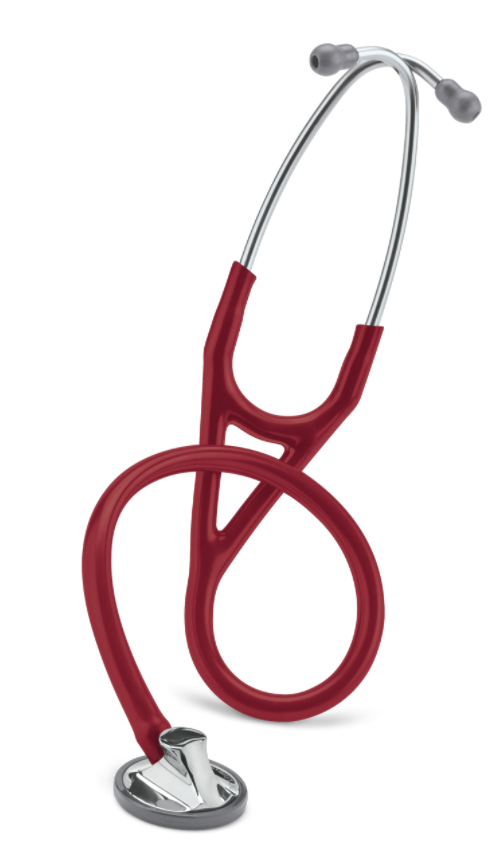
However, even more recently, the CORE Digital Stethoscope has risen to fame -- taking all these qualities to the next level
"Over the years, I have not been very particular about which stethoscope I used, as many of thedevices are functionally adequate and provide a good general assessment for valvular heart disease," says Dr. Antoine Keller, a Cardiovascular, Thoracic, and Endovascular Surgeon at Baton Rouge General Hospital. "As I began going out into the community to assess the prevalence of heart disease in disadvantaged communities with the Heart-Sense Structural Heart Disparities Project, I needed something with better acuity that would allow more accurat eassessment in a wide range of environments."
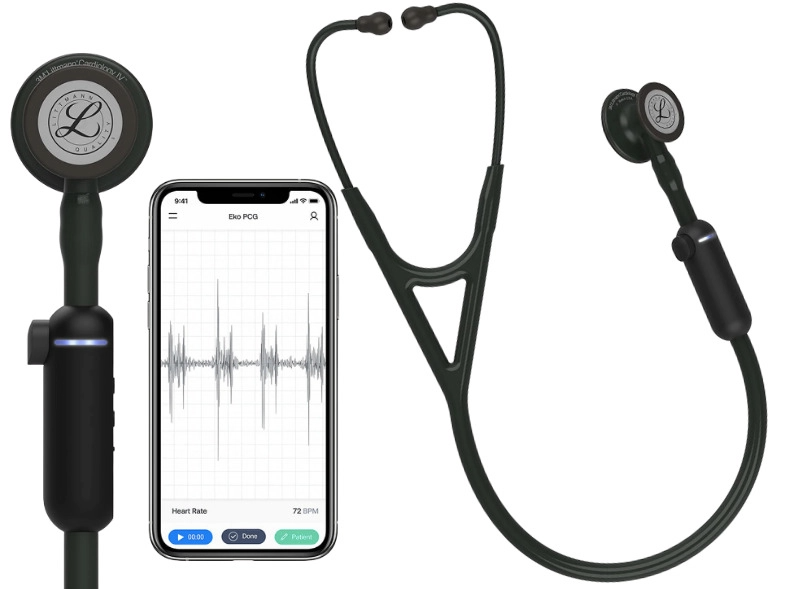
Remarkably, the CORE Digital Stethoscope uses Eko software to store HIPAA-compliant auscultation recordings on various devices via bluetooth, making it a game-changer for telemedicine. With its AI-powered technology, it can detect even more subtle nuances in heart rhythm, allowing physicians to stop life-threatening conditions in their tracks.
Featuring up to 40x noise amplification and active noise cancellation, it is easily the stethoscope of the future.
"I started using the 3MTM Littmann® CORE Digital Stethoscope powered by Eko, and it was a complete game changer," Dr. Keller continues. "It is lightweight yet powerful, and helps to differentiate sounds with its noise canceling capabilities. It has enhanced sound amplification, artificial intelligence, and data tracking to detect any heart irregularities. It truly provides a quality control measure in noisy environments and places with higher volume ambient chatter. The stethoscope also allows the diagnosis of patients with heart murmurs and atrial dysrhythmias more easily."
What's more, if you already own a Cardiology IV, a simple CORE digital attachment is available to transform it into a digital stethoscope.
For Pediatricians
When your work revolves around tending to smaller, more vulnerable patients like children, you understand the importance of helping them feel at ease. That's why the Classic II Infant and Classic II Pediatric are both must-haves in your pediatric practice.
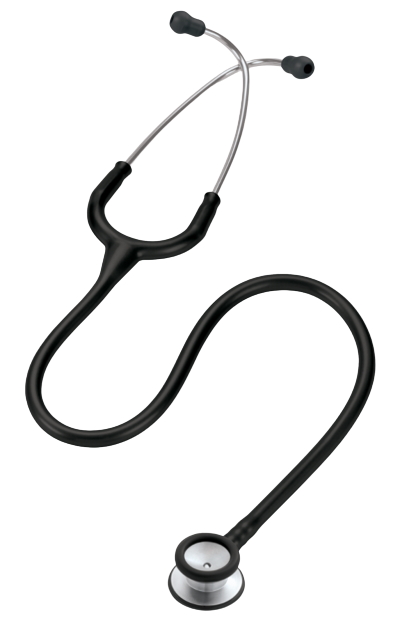
Both of these stethoscopes are designed for smaller patients, with diaphragms of 2.7cm and 3.3cm (respectively) to accommodate their build. With their sweetly fun colors and rainbow finishes, they also keep your young patients amused and give them a morale boost during otherwise stressful visits.
For Nurses
Nurses are unquestionably the anchor of the medical world. Every doctor's appointment begins and ends with a nurse's friendly face guiding the journey, which is why these heroes need a grounding tool by their side. Registered nurses are required to know auscultation, and a terrific yet straightforward stethoscope for them is the Classic III.
The Classic III is more affordable than the Cardiology models, yet still gets the job done. It is effective for everyday auscultation, with a two-sided diaphragm for all patients. It's ideal for non-critical settings yet still exhibits top-of-the-line performance. Even general practitioners use it for their day-to-day routine.
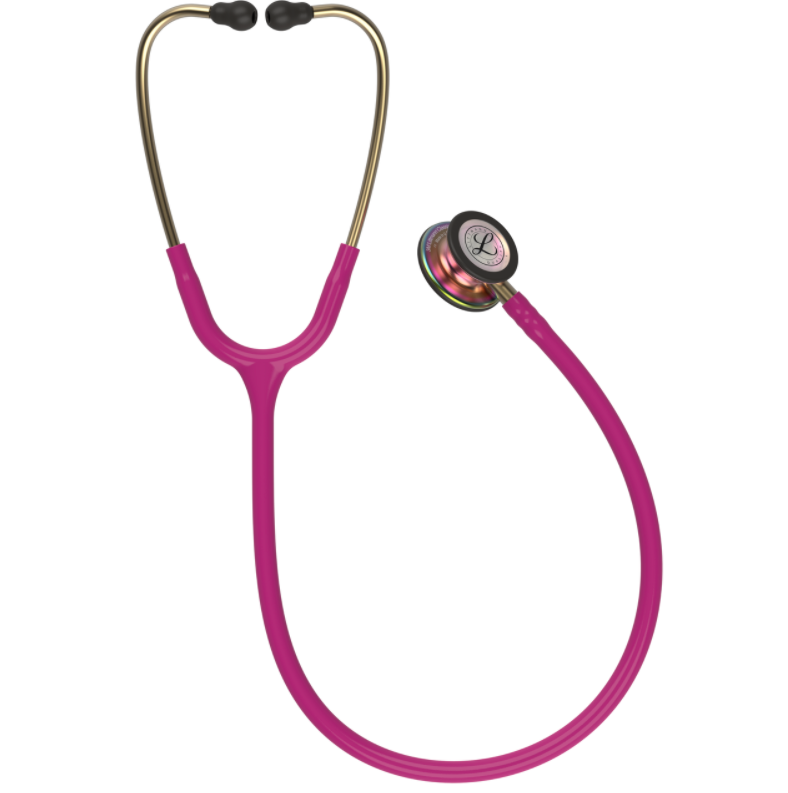
"I have been using the Littmann III since my residency," says Dr. Janice Stewart, an Internal Medicine & Pediatric Sports Medicine trained physician. "I like it for its durability, good acoustics, and two-sided chestpiece for both adult and pediatric patients. It's easy to clean because each side is smooth. The pediatric side also converts easily to an open bell by replacing the single piece diaphragm with a non-chill rim. The material of the tubing does not pick up stains and is resistant to alcohol and skin oils. The small diaphragm can be used with pediatric, small or thin patients and for carotid assessment."
The easy-to-clean quality of this stethoscope is especially handy in frequent-use cases. As a nurse or general practitioner, you'll want a tool you can conveniently sterilize without fear of ruining the tubing or finish.
For Veterinarians
Humans are not the only ones that need the love and guidance of a caring doctor and a superb stethoscope. The Classic II Infant and Classic II Pediatric stethoscopes can also be applied for veterinarians and animal care specialists. They offer dependable auscultation, on par with their other Classic II and Classic III counterparts.
"When looking for a stethoscope you need to determine the size of your patient," shares Dr. Sara Ochoa, DVM, a small animal and exotic veterinarian in Texas, as well as a veterinary consultant for DogLab. "For very small and exotic animals, I love infant and pediatric stethoscopes."
However, Dr. Ochoa emphasizes the flexibility of other stethoscopes in this practice as well.
"One of the best stethoscopes for dogs and cats is the Littmann Master Cardiology stethoscope," she explains. "It has all the features that you need to be able to clearly hear a dog or cat's heart."
In general, stethoscopes with longer tubing are best for auscultation on four-legged patients, as they allow you to better maneuver to hard-to-reach spots on their body. For animal hospitals and critical care settings (as opposed to traditional veterinary clinics), these higher-end stethoscopes may indeed be necessary.
Make It Your Own
Once you've found the Littmann stethoscope model that best suits your medical specialty, don't forget to consider the customization options that truly make it your own. Stethoscopes like the Littmann III and Cardiology IV come in countless styles so your personality can come across in your diagnostic tools.
Available chestpiece finishes range between Rainbow, Smoke, and Champagne. Meanwhile, tubing colors can be as bright and playful as Rose Pink and Lime, or they can be as distinguished as Burgundy and Copper Chocolate. What's more, you can add a stethoscope engraving with your name and credentials for that extra personalized touch.
Your stethoscope is as pivotal to your practice as your prescription pad, so choosing one that fits your calling -- and your patients -- is key to successful diagnoses and overall satisfaction.
